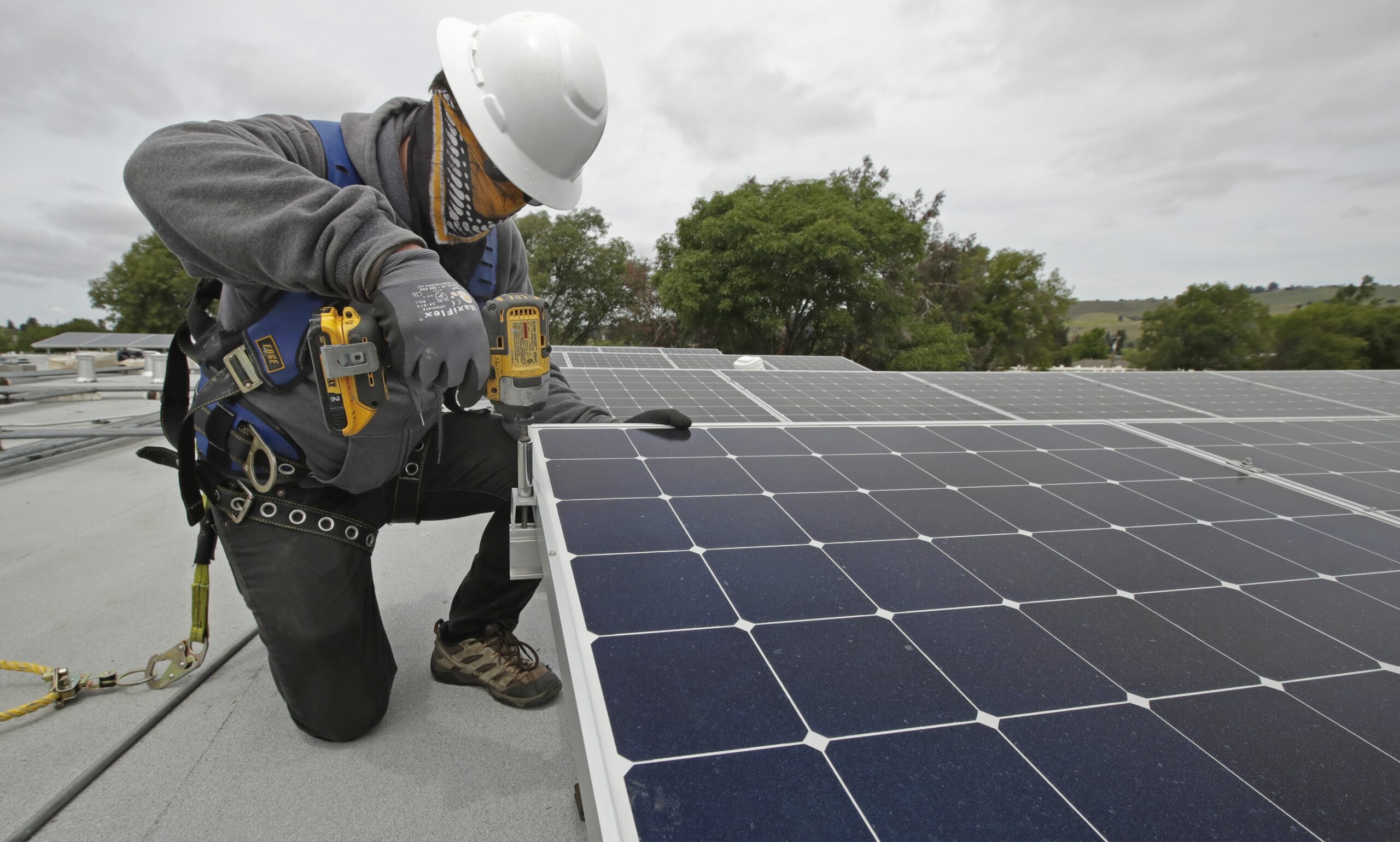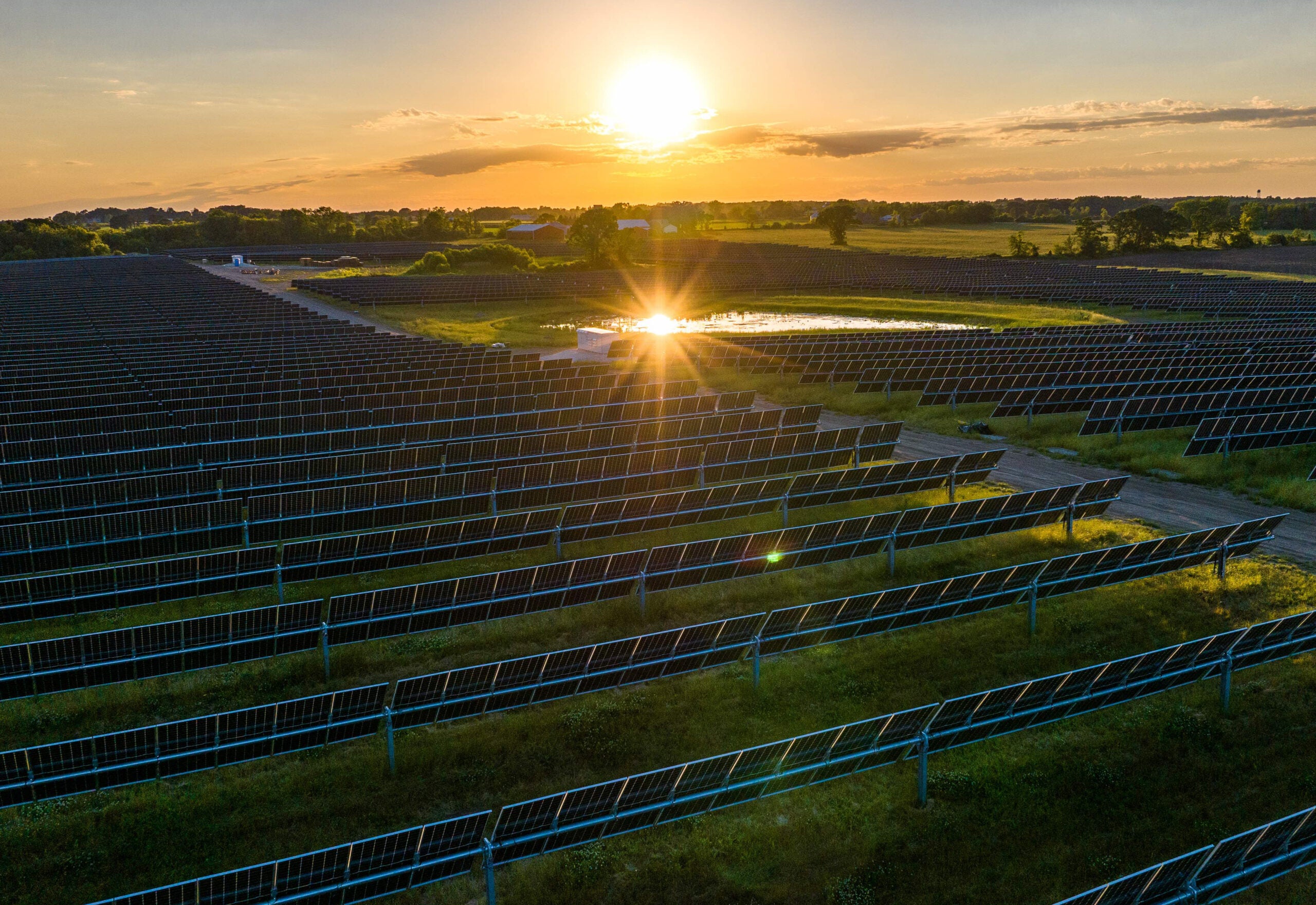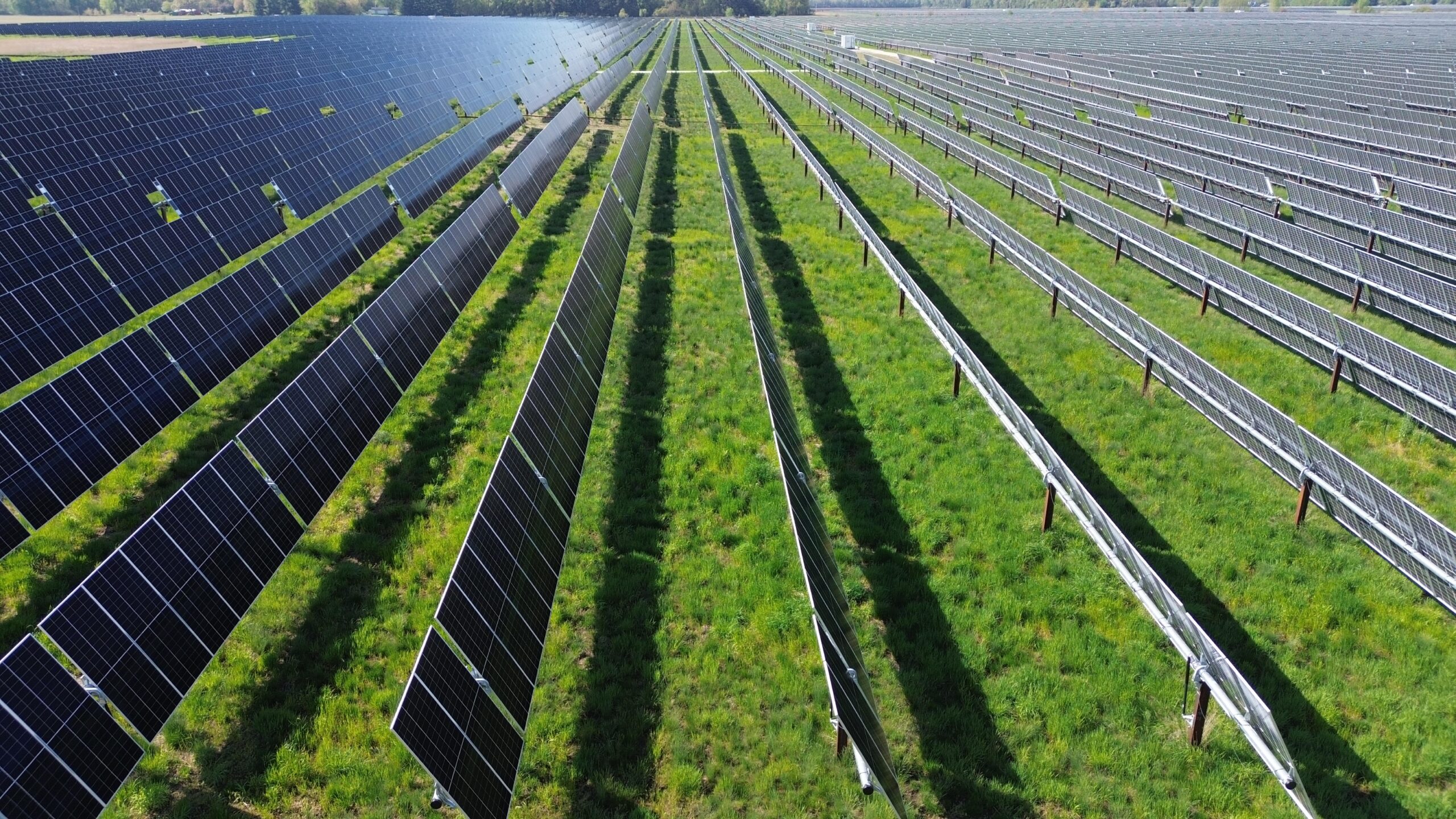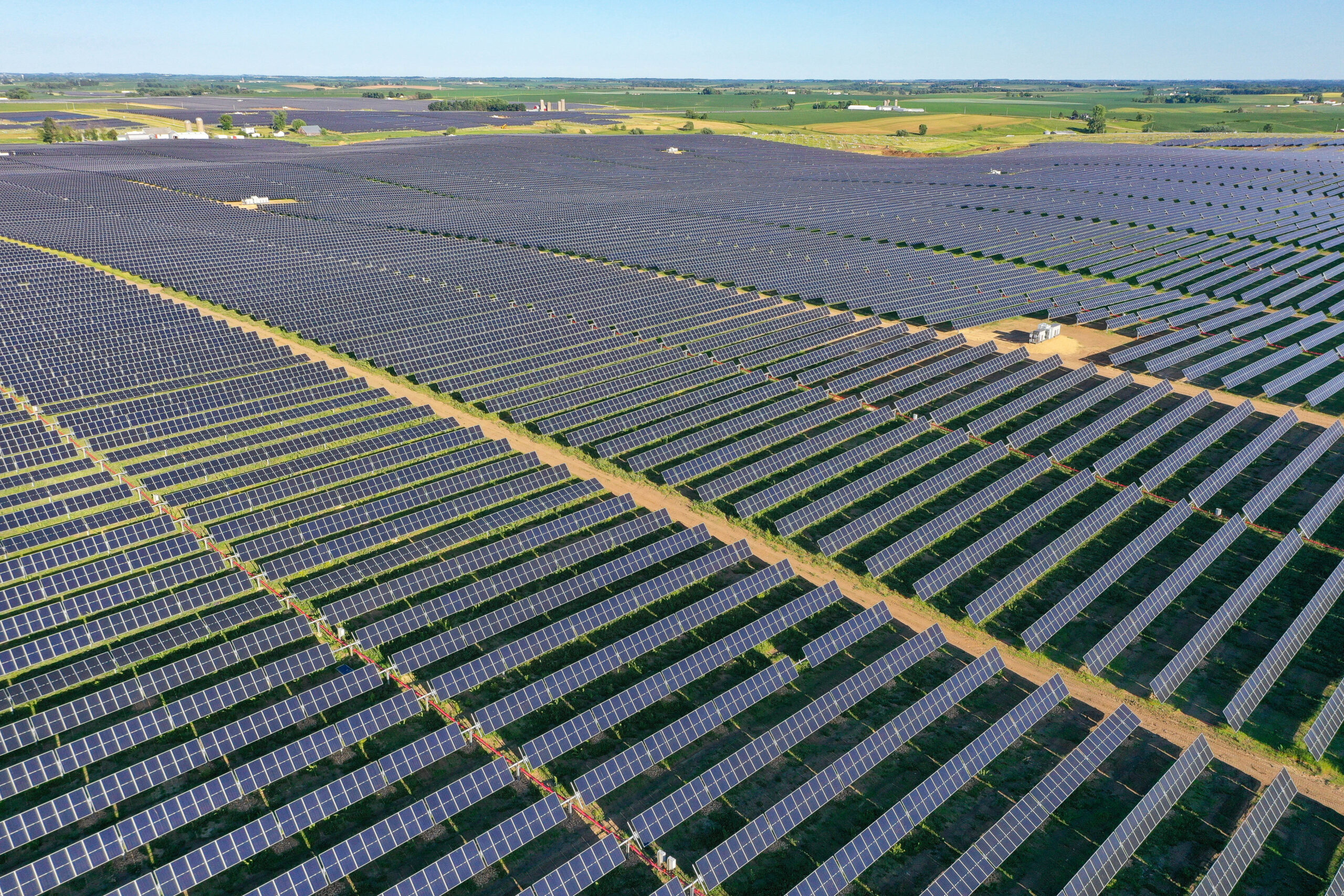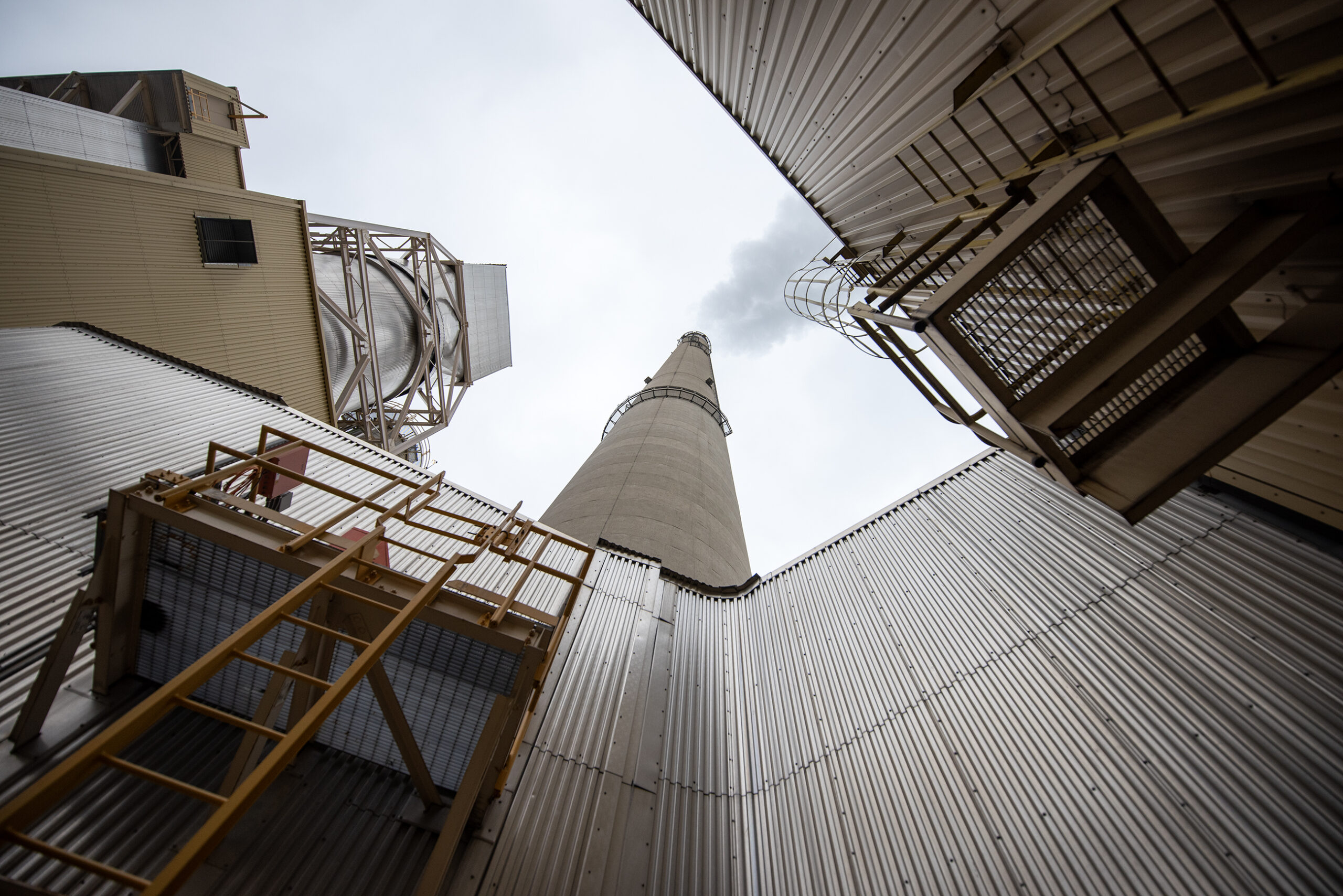Utility regulators in Wisconsin have agreed to take a new look at an issue that clean energy boosters say is making it tough for some homeowners and businesses to install solar power.
The Midwest Renewable Energy Association and Vote Solar filed petitions in late May with the Public Service Commission, asking the commission to reconsider the legal status of third-party financing of solar systems, which they say provides an affordable option for Wisconsinites who want to add solar power to their homes or businesses. They want regulators to issue a ruling stating the financing tool is legal.
Guidance from the PSC has indicated third-party financing of small-scale renewables would meet the definition of a public utility, requiring developers to get approval to sell power. The commission voted 2-1 on Thursday to take up the petitions.
Stay informed on the latest news
Sign up for WPR’s email newsletter.
“It is a reasonable step to provide guidance to parties who have explicitly asked for it in our area of expertise, the regulation of public utilities,” said Commissioner Tyler Huebner.
The financing tool allows solar installers or developers to pay the upfront cost of solar installations and lease the systems to customers, who pay them off over time. The agreements are beneficial to homeowners, schools or local governments that are unable to use federal tax credits to help pay for solar projects.
“There are plenty of third-party financing companies across the nation that will commit money to put solar on top of those facilities, and then rent it back,” said Trevor Sumner, president of Sun Badger Solar, a Midwest solar developer that serves Wisconsin. “Third-party financing is a huge driver for solar energy adoption across the United States. And, in most states, it’s a legal way of going about developing solar power, and just right now it is not in Wisconsin.”
The groups are seeking clarity over the financing mechanism on behalf of members who want to lease solar systems to customers, but haven’t moved forward with projects. Solar developers fear they’ll be regulated as a public utility or won’t be able to connect solar installations with the utility’s system.
The matter has been highlighted after Iowa solar developer Eagle Point Solar wanted to install solar panels on buildings in Milwaukee, according to the Milwaukee Journal Sentinel. We Energies would not allow those systems to connect to the utility’s system.
The issue of solar leasing has been raised with the Public Service Commission multiple times, but the commission has declined to provide any clarity on state law. The law defines a public utility as any entity that provides “heat, light, water or power either directly or indirectly to or for the public.”
Republican lawmakers also introduced bills in the last session that would have clarified solar installers aren’t public utilities, allowing them to lease systems to customers. The bills didn’t receive a public hearing.
“We can choose to look at what has been brought together in terms of the record and the evidence, and we can choose to do nothing with it,” PSC Chair Rebecca Valcq said. “Or, we can choose to take it up to talk about it and potentially make a decision.”
Commissioner Ellen Nowak was the lone dissenting vote on the commission’s decision to consider the petitions. Nowak said the Wisconsin Supreme Court has already ruled that whether an entity is considered a public utility should be addressed on a case-by-case basis. She argued the Midwest Renewable Energy Association’s petition in particular lacks merit because it doesn’t refer to a specific project or set of circumstances.
“I think we need to let the Legislature, again, answer this question,” said Nowak. “The passage of time alone — just because more people write in and time has passed, and the Legislature hasn’t acted yet, again — does not allow us to act where we shouldn’t.”
In a statement late Thursday, Nowak called the commission’s decision “purely political.”
“By instructing the parties to forgo their rightful motion practice and have the proceeding concluded by December 1, the Commission made it clear that they want this issue decided before a potential change in the Commission’s make-up,” wrote Nowak. “Because the Commission decision today improperly expands its jurisdiction, I could not support it.”
Environmental groups, renewable energy advocates and groups representing local governments have urged the Public Service Commission to clear a path for solar systems that are owned by a third party. The financing mechanism has received support from the League of Wisconsin Municipalities, RENEW Wisconsin, and the Sierra Club.
The Wisconsin Local Government Climate Coalition represents nearly a dozen local governments, including the cities of Madison, Milwaukee and Green Bay. They said in comments filed with the commission that legal uncertainty surrounding the financing tool is an obstacle for communities trying to reach their carbon reduction goals.
“Third party financing is a linchpin mechanism for securing a just energy transition that engages customers of all income levels,” communities wrote in their filing.
However, utilities and labor groups have opposed efforts to declare that solar installers are not public utilities under the law, including the Wisconsin Utilities Association and Wisconsin Electric Cooperative Association. They say the Legislature should decide any changes on who is considered a regulated power provider.
“As an entity that exists to protect the interests of our consumer members, a well-regulated utility system should provide safe, reliable, and affordable electricity equitably to ALL members,” wrote Steve Freese, president and CEO of the Wisconsin Electric Cooperative Association in comments to the commission. “These petitions fail to provide a clear and convincing argument for the Commission to alter significant energy policy in the state that should, and must, be reserved for the Legislature.”
Supporters of the financing tool say utilities don’t want to lose customers who may seek to obtain power from third-party financed systems rather than the utility. Utilities have said allowing unregulated solar developers to sell power directly to certain customers would shift a greater burden of energy costs to other ratepayers who don’t want or can’t afford solar projects.
The Wisconsin Utilities Association argues solar installers own the equipment they would lease to customers and provide power to anyone who can afford it, qualifying them as a public utility. Renewable energy groups like the Midwest Renewable Energy Association argue they don’t sell power to the public, saying it’s a contractual relationship with a single customer.
Wisconsin Public Radio, © Copyright 2025, Board of Regents of the University of Wisconsin System and Wisconsin Educational Communications Board.

